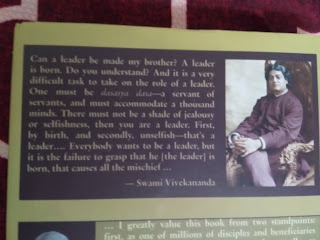Pauline Sara Jo Moyes, known as Jojo Moyes, is an English journalist and, since 2002, a romance novelist and screenwriter.
Having loved 'Me Before You', it generated a curiosity to find what happened with Lou after the first book and Lo and Behold , now its a trilogy;
I looked for the review on Me Before You and see, it's not written. So had to glimpse through the book once again, making these 63rd to 65th of 2020.
1) Me Before you (2012):
Louisa Clark is an ordinary girl living an exceedingly ordinary life—steady boyfriend, close family—who has barely been farther afield than their tiny village. She takes a badly needed job working for ex–Master of the Universe Will Traynor, who is wheelchair bound after an accident. Will has always lived a huge life—big deals, extreme sports, worldwide travel—and now he’s pretty sure he cannot live the way he is.
Will is acerbic, moody, bossy—but Lou refuses to treat him with kid gloves, and soon his happiness means more to her than she expected. When she learns that Will has shocking plans of his own, she sets out to show him that life is still worth living.
"What do you do when making the person you love happy also means breaking your own heart?"
Louisa and Will's relationship starts out rocky due to his bitterness and resentment over being disabled. Things worsen after Will's ex-girlfriend, Alicia, and best friend Rupert reveal that they are getting married. Under Louisa's care, Will gradually becomes more communicative and open-minded as they share experiences together. Louisa notices Will's scarred wrists and later overhears his mother and father discussing how he attempted suicide shortly after Camilla refused his request to end his life through Dignitas, a Swiss-based assisted suicide organisation. Horrified by his attempt, Camilla promised to honour her son's wish, but only if he agreed to live six more months. Camilla intends to prove that, in time, he will believe his life's worth living.
Louisa conceals knowing about Will and Camilla's agreement. However, she tells Treena, and together they devise ways that will help convince Will to abandon his death wish. Over the next few weeks, Will loosens up and Louisa begins taking him on outings and the two grow closer.
Through their frequent talks, Louisa learns that Will has travelled extensively; his favourite place is a café in Paris. Noticing how limited her life is and that she has few ambitions, Will tries to motivate Louisa to change.
Louisa continues seeing her longtime boyfriend of 7 years, Patrick, though they eventually break up due to her relationship with Will. Meanwhile, Louisa's father loses his job, causing more financial difficulties. Steven Traynor offers Mr. Clark a position. Louisa realises that Will is trying to help her secure her freedom from her family. The two attend Alicia and Rupert's wedding where they dance and flirt. Will tells Louisa that she is the only reason he wakes in the morning.
Louisa convinces Will to go on a holiday with her, but before they can leave, Will contracts near-fatal pneumonia. Louisa cancels the plans for a whirlwind trip. Instead, she takes Will to the island of Mauritius. The night before returning home, Louisa tells Will that she loves him. Will says he wants to confide something, but she admits that she already knows about his plans with Dignitas. Will says their time together has been special, but he cannot bear to live in a wheelchair. He will be following through with his plans. Angry and hurt, Louisa storms off and does not speak to him for the remainder of the trip. When they return home, Will's parents are pleasantly surprised by his good physical condition. Louisa, however, resigns as his caretaker, and they understand that Will intends to end his life.
On the night of Will's flight to Switzerland, Louisa visits him one last time. They agree that the past six months have been the best in their lives. He dies shortly after in the clinic, and it is revealed that he left Louisa a considerable inheritance, meant to continue her education and to fully experience life. The novel ends with Louisa at a café in Paris, reading Will's last words to her in a letter, that tell her to 'live well'.
2) After You (2015):
There’s also a beautiful thing that Lily tells Lou –
“Moving on doesn’t mean you love the person any less.”
“You’re going to feel uncomfortable in your new world for a bit. But I hope you feel a bit exhilarated too. Live boldly. Push yourself. Don’t settle. Just live well. Just live. Love, Will.”
'''' You don't have to let that one thing be the thing that defines you"
How do you move on after losing the person you loved? How do you build a life worth living?
Louisa Clark is no longer just an ordinary girl living an ordinary life. After the transformative six months spent with Will Traynor, she is struggling without him. When an extraordinary accident forces Lou to return home to her family, she can’t help but feel she’s right back where she started. After Will's death Louisa is trying to move on. She was convinced by his motivation to change, so she moved to London and gets a job in an airport bar. One night, she decides to go up the roof of her building to sit alone when someone from behind her talks to her. She panics and falls off the roof. She breaks many bones and takes a lot of time to heal.
Her body heals, but Lou herself knows that she needs to be kick-started back to life. Which is how she ends up in a church basement with the members of the Moving On support group, who share insights, laughter, frustrations, and terrible cookies. They will also lead her to the strong, capable Sam Fielding—the paramedic, whose business is life and death, and the one man who might be able to understand her. Then a figure from Will’s past appears and hijacks all her plans, propelling her into a very different future. . . .She lies to everyone and tells them Will's name was Bill. Lily, Will's daughter gets in contact with her and she wants to know everything about her deceased father, whom she didn't know existed until he died. Lily wants to get to know her grandparents, so she moves in with Louisa. She hates living with her mother, stepfather, and her half-brothers.
For Lou Clark, life after Will Traynor means learning to fall in love again, with all the risks that brings. Louisa gets to know Sam, the uncle of one of the boys in her moving on circle one of the ambulance drivers that helped save her life. As she gets to know him, a new love story begins to grow in her life. Nathan who was wills nurse, caretaker and friend, gets in contact with her and offers her a job in the USA. She interviews for this job and gets accepted. It is such a hard decision for Lou as she had just started to fall for Sam.
But here Jojo Moyes gives us two families, as real as our own, whose joys and sorrows will touch you deeply, and where both changes and surprises await.
3) Still Me (2018):
Louisa Clark arrives in New York ready to start a new life, confident that she can embrace this new adventure and keep her relationship with Ambulance Sam alive across several thousand miles. She steps into the world of the superrich, working for Leonard Gopnik and his much younger second wife, Agnes. Lou is determined to get the most out of the experience and throws herself into her new job and New York life.
As she begins to mix in New York high society, Lou meets Joshua Ryan, a man who brings with him a whisper of her past. Before long, Lou finds herself torn between Fifth Avenue where she works and the treasure-filled vintage clothing store where she actually feels at home. And when matters come to a head, she has to ask herself: Who is Louisa Clark? And how do you find the courage to follow your heart—wherever that may lead?
The snippets of Will throughout—letters written to his mother from his own time in New York and his anecdotes about life that pop up when Lou needs them most—acted as a salve of sorts.
WE will get to know several places around the city that never sleeps, becoming another resident there as well as Lou. Jojo’s narrative which turn into the very voice and thoughts of Louisa, take us to New York in a way that you can watch each building, you can feel each street, you can taste each weather. We learn about the Clark family and the Traynors too.
The book teaches empathy.
Still Me follows Lou as she discovers who she is reassuring that everything and everyone will be okay.







































